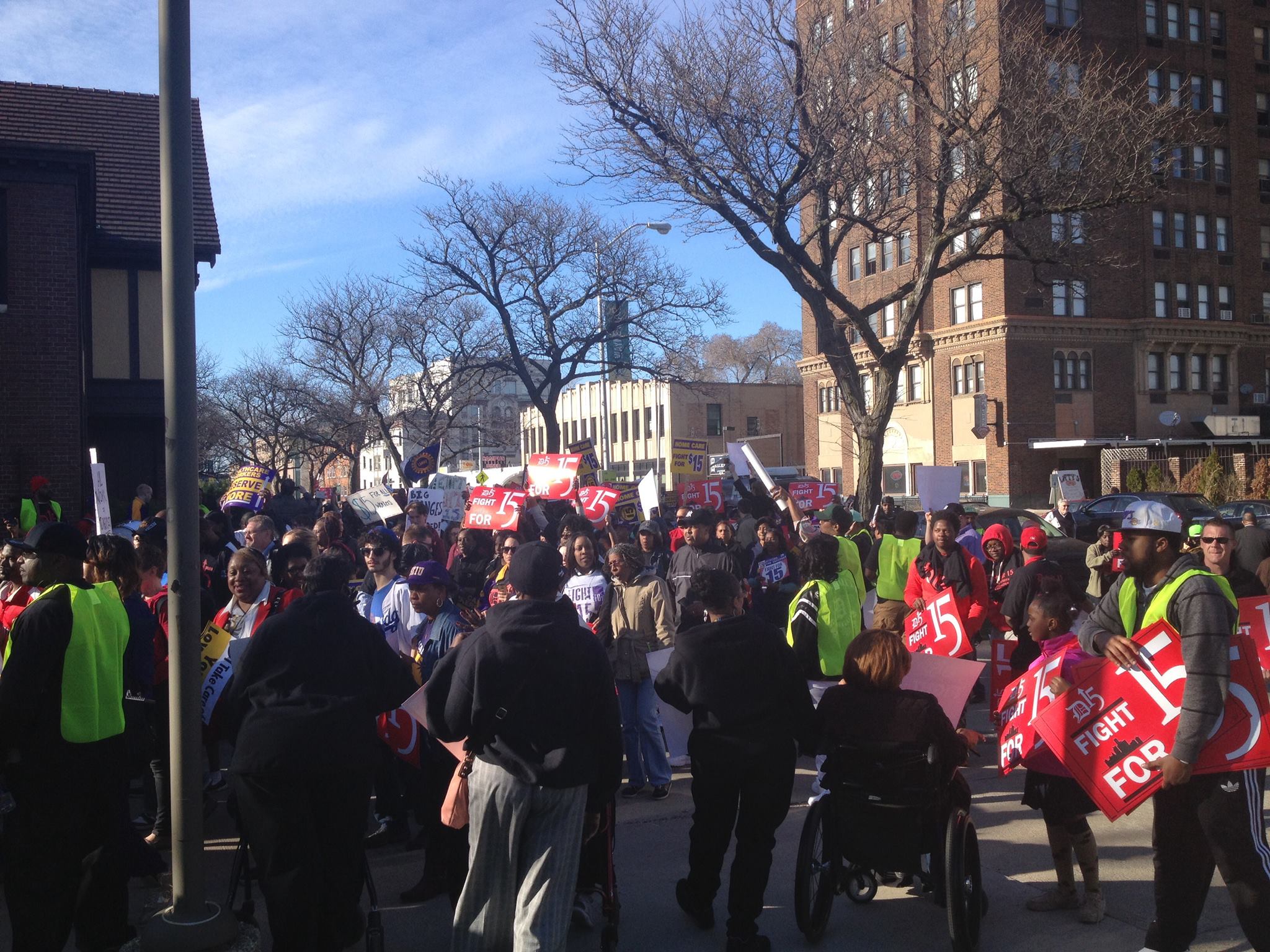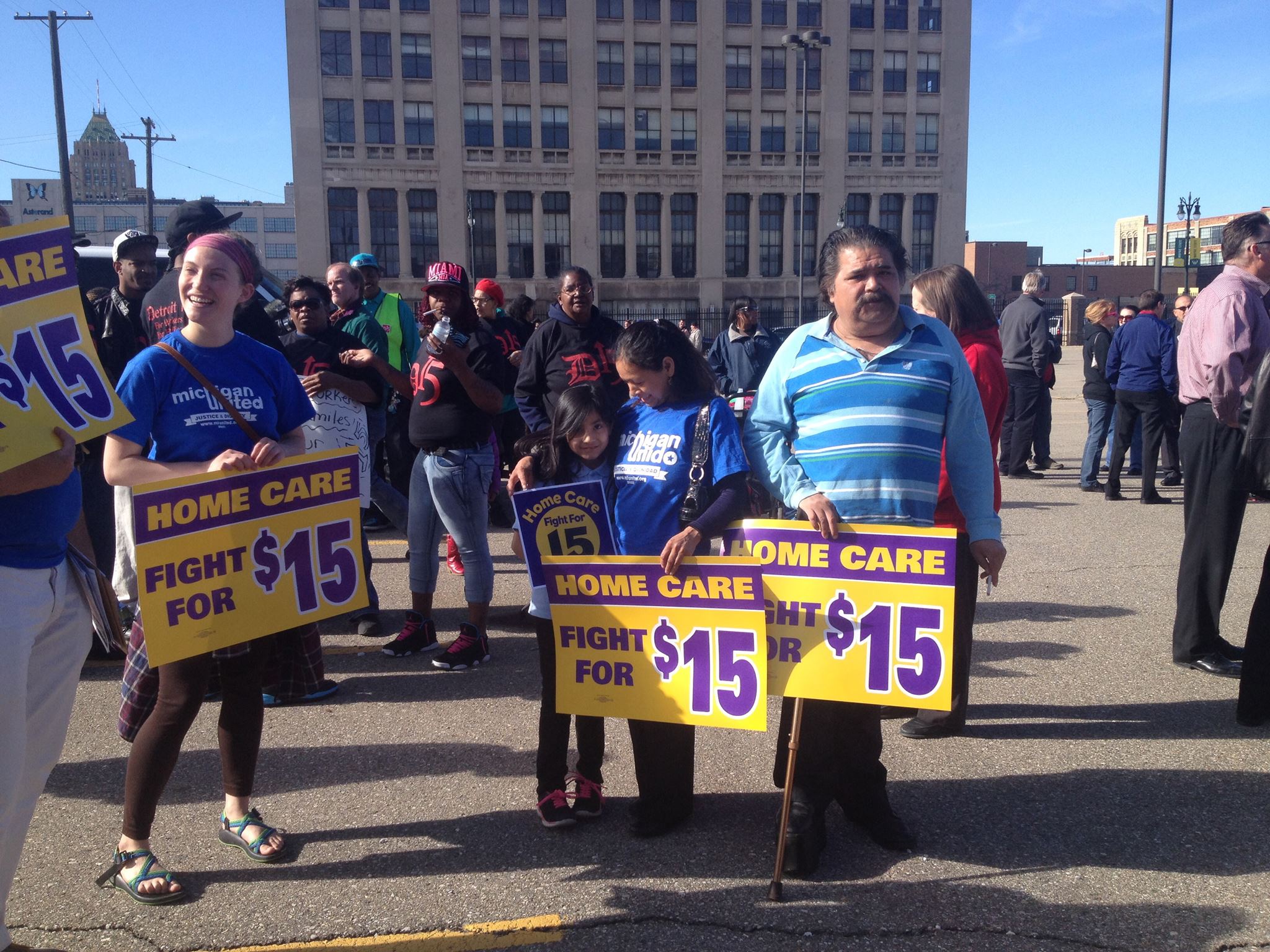"Fight For $15" Brings Hundreds To Rally For Higher Minimum Wage
DETROIT (CBS DETROIT) - On this tax day, a large group of protesters gathered on the campus of Wayne State.
Jamie Gunther drove down for the rally from Midland, she's a nursing assistant at the Tender Care Nursing Home.
"I make a little over $11," she said, "and I've been there for eight years and you can't really live off that. Grocery shopping? It doesn't really happen."
Gunther said, while she didn't go to college, her job is important.
"Very important, because I lot of people don't have family or they do have family members and they don't really come see them very much and I think of them like my family - you know."
Across the nation there have been over 200 rallies just like the one taking place in Detroit.
Willie Williams works at Church's Chicken in Flint.
"We are protesting, we want $15 an hour and a union, because corporations make billions and billions of dollars, and still we are making minimum wage and we can't even live."
Williams says he gets about $190 a month in food stamps. "All they want us to do is get government assistance - we want to work for it - we don't want a handout from the government."
"Gas goes up ... cost of living goes up but our wages stay the same. In 1973, I started out young, I was making $5 an hour - this is 2015 Michigan is still $8.40 - you think about it," he said.
 Fast food employees, health care workers, grad students and child care providers turned out to demand $15 per hour.
Fast food employees, health care workers, grad students and child care providers turned out to demand $15 per hour.
Susan Titus is the president of the Union of Part-time Faculty at Wayne State University.
"We are like these workers," said Titus. "We are underpaid for our services and the university depends on us and the other thing is we don't get any benefits; no health, no retirement."
Betty Henderson is a child care worker with a college degree.
"Most of my children are DHS subsidy their children and the state pays us by the hour and the hourly wage is less than $4 per hour - so we have a lot of parents who either have to pay out of pocket, or we , the providers have to take that loss if they can't pay the balance of what their weekly tuition is," said Henderson.
Henderson, who has a college degree, says she loves her job but it's difficult to make ends meet.
Claire-Marie Brisson is a graduate student at Wayne State University :" I am actually a master's student and I'm making just a little over minimum wage. Almost 200,000 people who have a Bachelor's Degree and have graduated from college are working minimum wage jobs, an that's unacceptable."
Jamie Gunther drove down for the rally from Midland, she's a nursing assistant there at the Tender Care Nursing Home.
"I make a little over $11," she said, "and I've been there for eight years and you can't really live off that - grocery shopping - it doesn't really happen."
Gunther said, while she didn't go to college, her job is important.
"Very important, because I lot of people don't have family or they do have family members and they don't really come see them very much and I think of them like my family - you know."
Across the nation there have been over 200 rallies just like the one taking place in Detroit as part of the nationwide, "Fight for $15" campaign.
In September 2014, a modest raise in the minimum wage went into effect. The state's minimum wage increased from the current $7.40 per hour to $8.15 per hour on September 1.
At the time, Michigan Governor Rick Snyder signed legislation in May to raise the state's minimum wage by 25 percent gradually over the next four years, as Republicans controlling the state government![]() moved to head off a November ballot measure that could have raised pay even more.
moved to head off a November ballot measure that could have raised pay even more.



